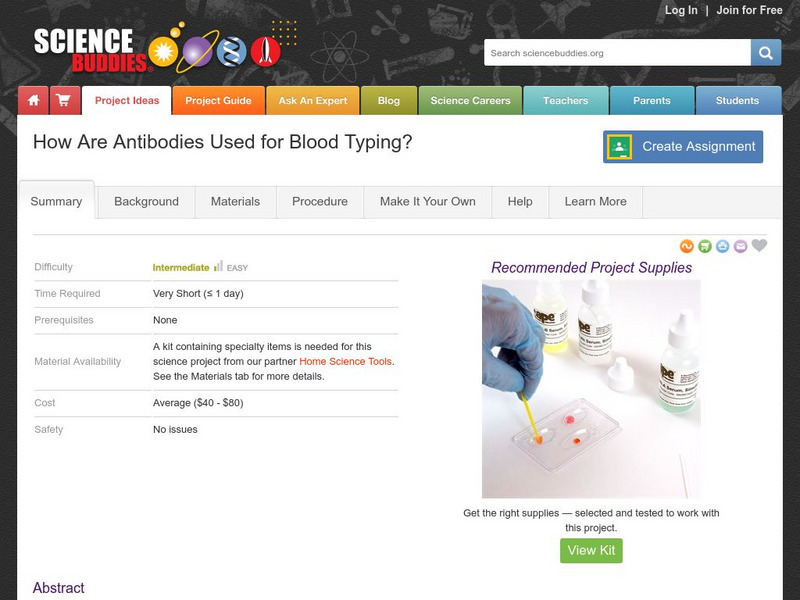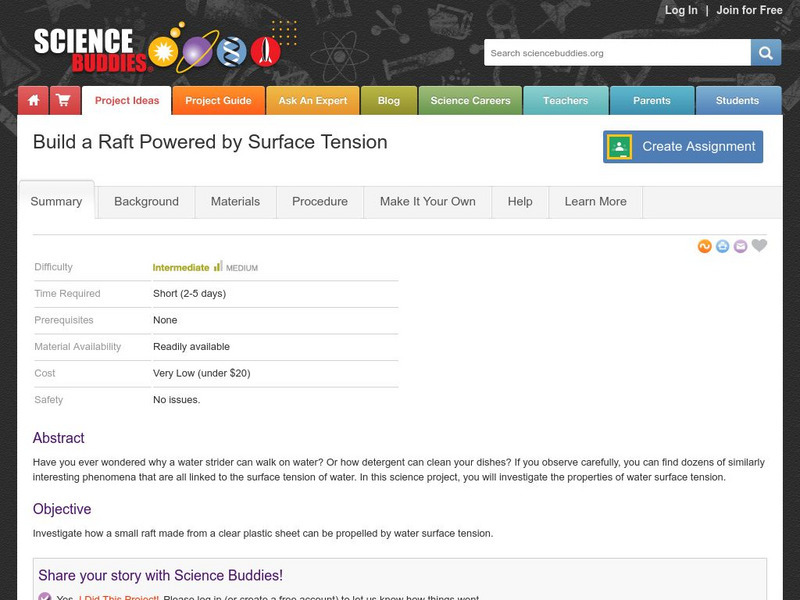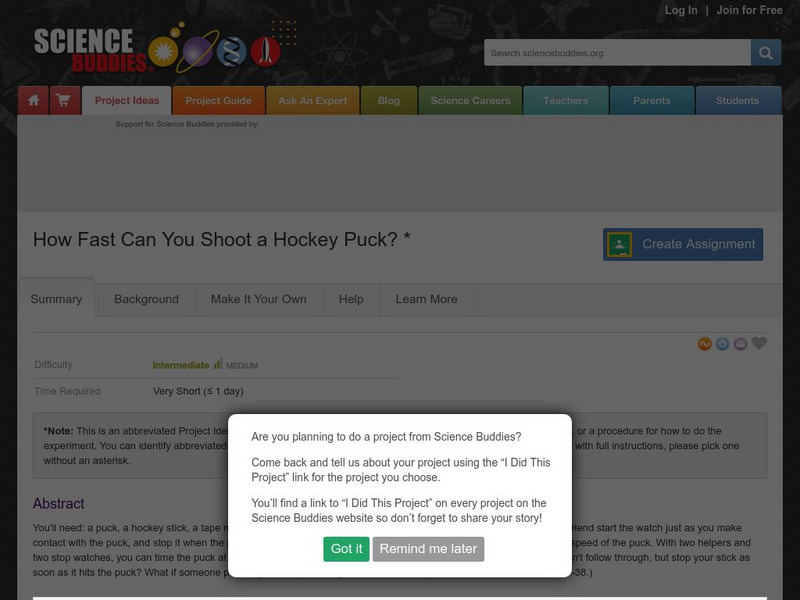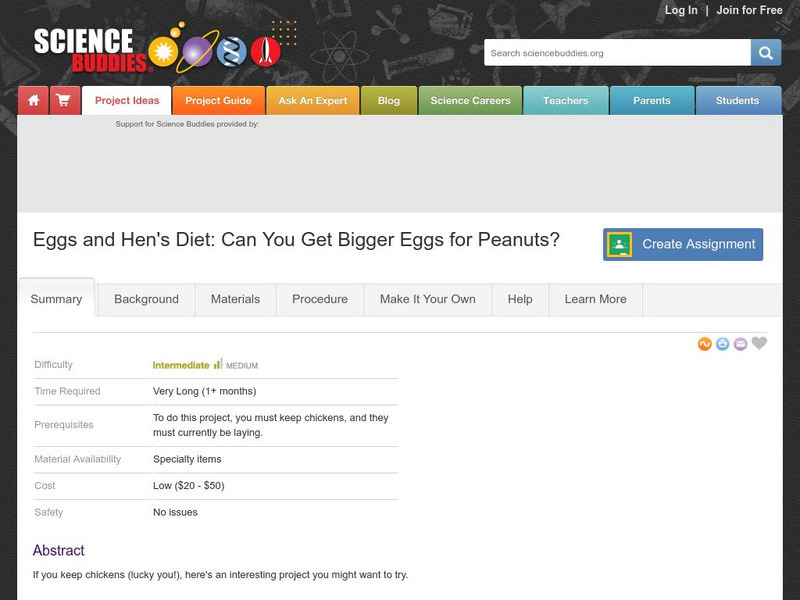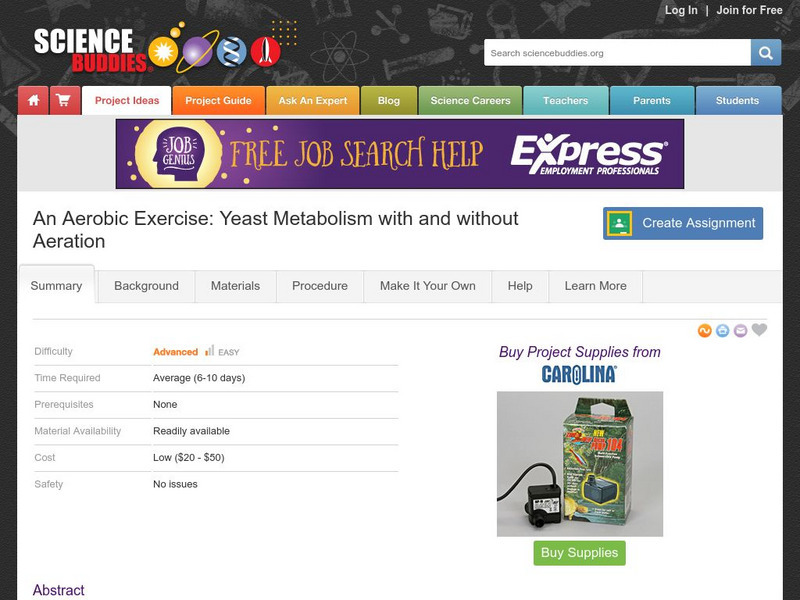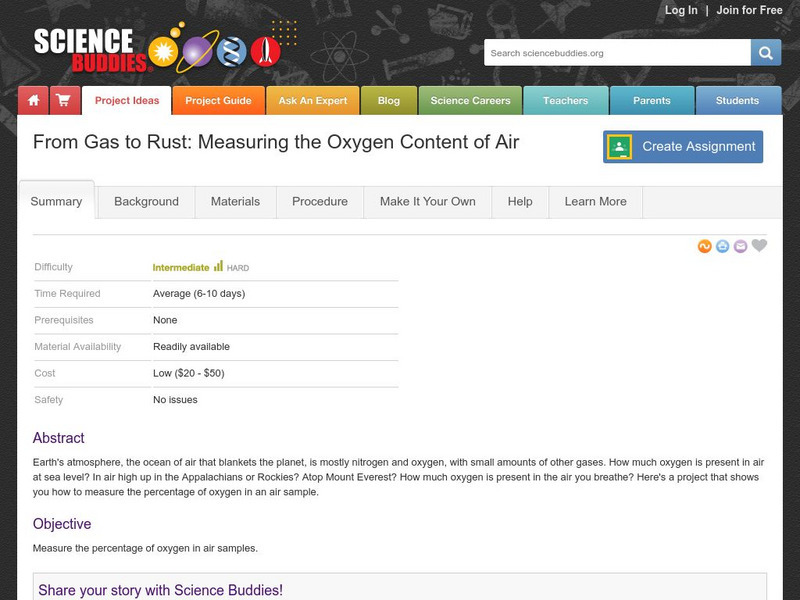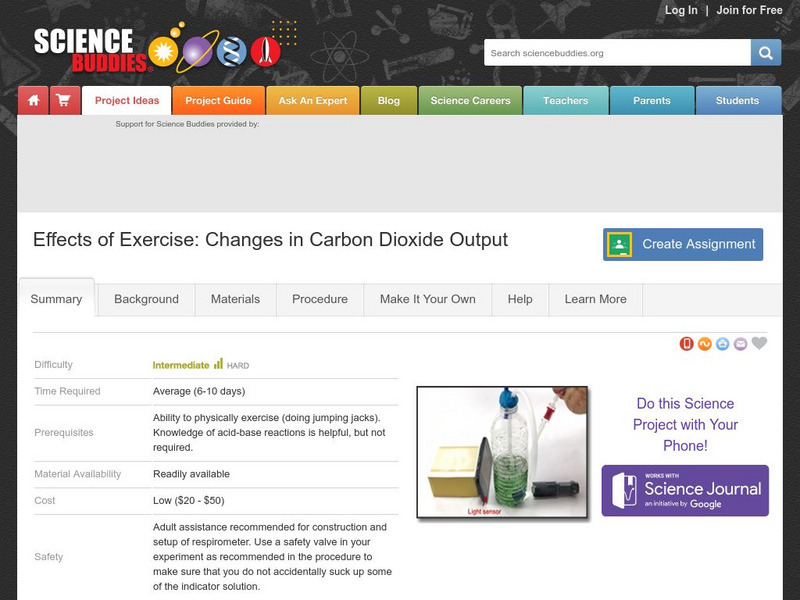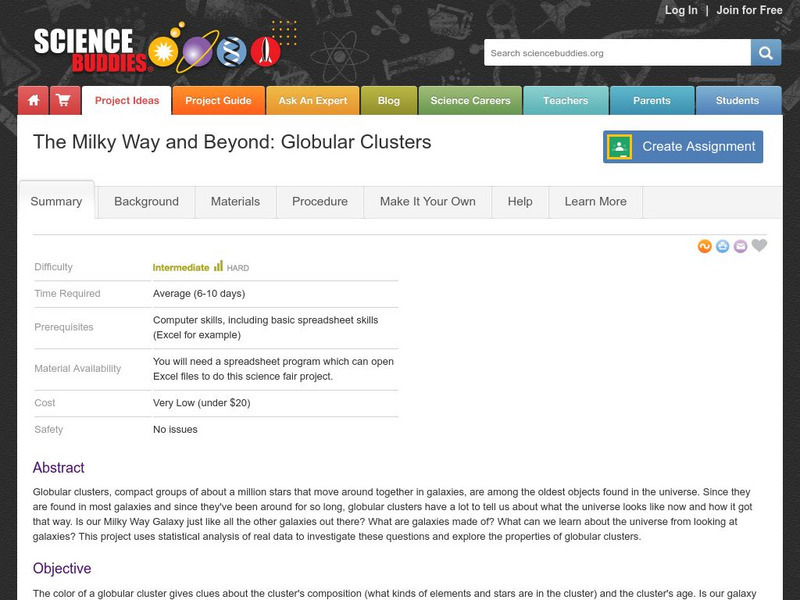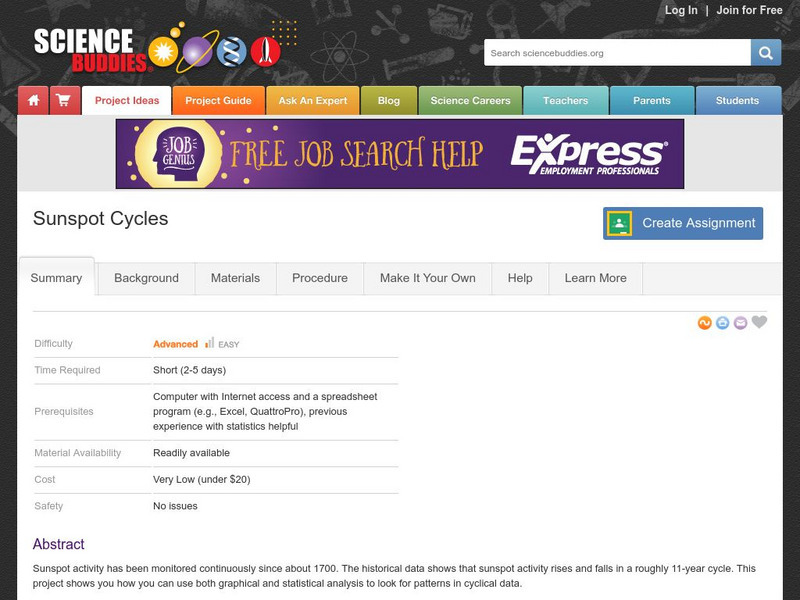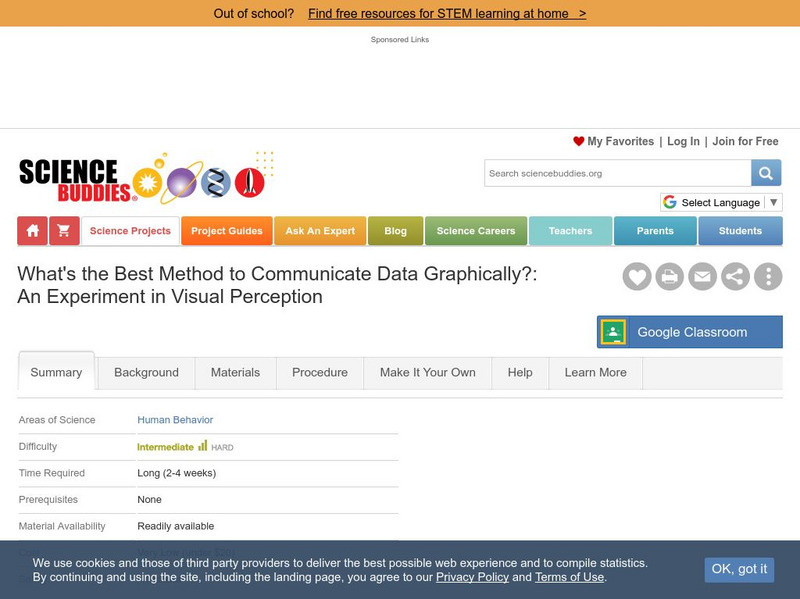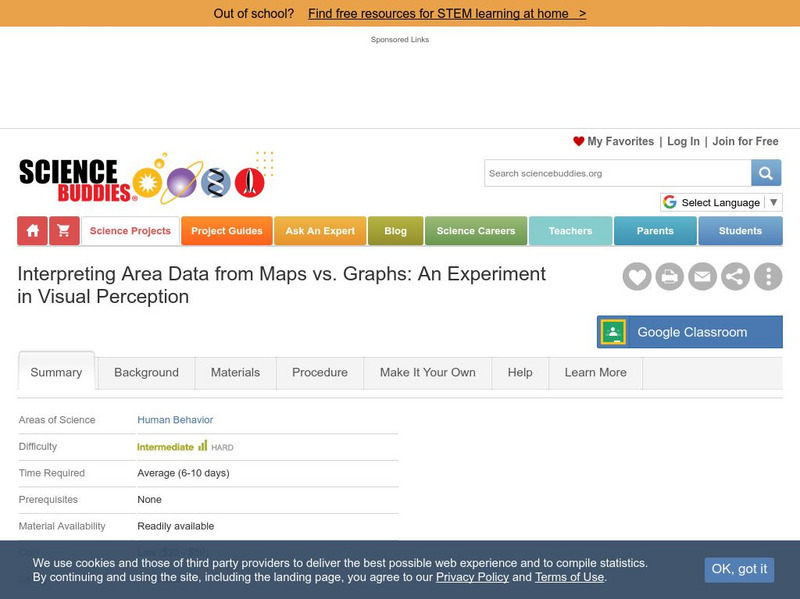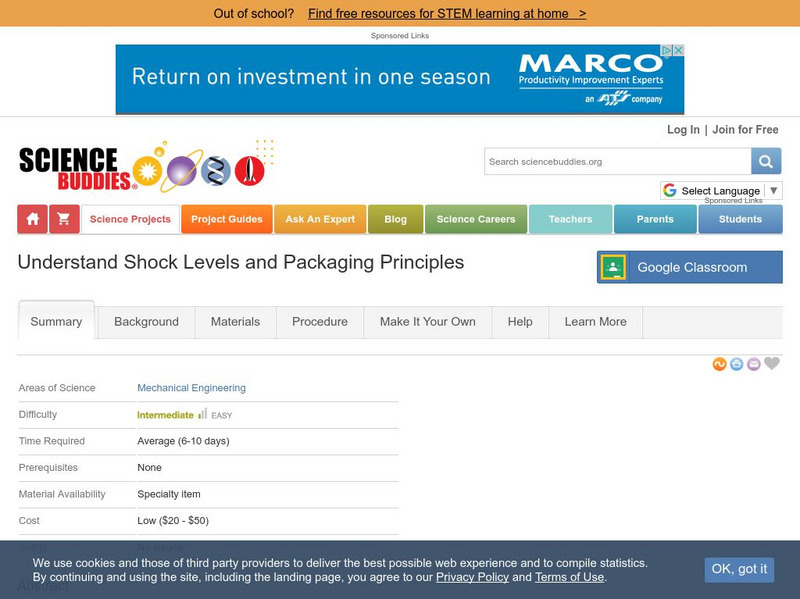Science Buddies
Science Buddies: Divide and Conquer: Proving Pick's Theorem for Lattice Polygons
If you like to play Tetris then you might like this project. You'll learn something interesting about the mathematics of complex shapes.
Science Buddies
Science Buddies: How Are Antibodies Used for Blood Typing?
The human immune system has various ways of responding to an infection caused by bacteria or viruses. Our bodies produce proteins (antibodies) that are highly specific for the infectious agent as a part of our "humoral" immune response....
Science Buddies
Science Buddies: Throwing You Some Curves: Is Red or Blue Longer?
This a straightforward, but interesting, project in geometry. It is a good first proof to try on your own. You should be able to figure it out by yourself, and you'll gain insight into a basic property of circles.
Science Buddies
Science Buddies: Build a Motorboat Powered by Surface Tension
If you look carefully, you could find dozens of similar interesting phenomena that are all linked to the surface tension of water. Here is a project that will help you understand and measure the properties of water surface tension.
Science Buddies
Science Buddies: How Fast Can You Shoot a Hockey Puck?
In this project, you'll need: a puck, a hockey stick, a tape measure, at least one helper with a stopwatch and an empty rink. Have your friend start the watch just as you make contact with the puck, and stop it when the puck hits the...
Science Buddies
Science Buddies: Exploring Fractals
Although fractal images can be intriguingly complex, fractals are more than just pretty pictures. In this project, you'll explore the mathematical properties of the famous Mandelbrot and Julia sets. You'll learn about how these images...
Science Buddies
Science Buddies: Paper Chromatography: Advanced Version 1
This project will teach you the basics of analytical chemistry, which is a must for students who want to go into chemistry or materials science. The molecules in objects we see all around us are constantly attracting each other....
Science Buddies
Science Buddies: Using Laser Pointer to Measure Data Track Spacing on C Ds, Dv Ds
You've probably noticed the colorful patterns "reflecting" from the shiny surface of a CD disk. What you are seeing is actually diffraction of white light, and the rainbows of color are diffraction patterns. In this project you'll learn...
Science Buddies
Science Buddies: Now You See It, Now You Don't: A Chromatic Adaptation Project
This project shows that our perceptions can change, even with the stimulus remains the same. A clear color difference in an image disappears after just 20 seconds of looking at another (special) image.
Science Buddies
Science Buddies: Eggs and Hen's Diet: Can You Get Bigger Eggs for Peanuts?
The goal of this project is to determine whether feeding chickens a dietary supplement of peanuts will result in larger and heavier eggs. If peanuts do increase egg size, a secondary goal will be to determine the optimal amount of peanut...
Science Buddies
Science Buddies: Boyle's Law
This is a modern version of a classic experiment by Robert Boyle on the compressibility of gases. Boyle discovered the relationship between pressure and volume of gases that now bears his name. This project shows you a simple method for...
Science Buddies
Science Buddies: Charles's Law
This is a modern version of a classic experiment by Jacques Charles on the volume of a gas at different temperatures. Charles discovered the relationship between volume and temperature of gases that now bears his name. This project shows...
Science Buddies
Science Buddies: Solar Cell Power Output vs. Temperature
Solar cells provide a clean way of making electricity directly from sunlight. In this project you will build a simple circuit and experimental setup to investigate whether the power output of a solar cell changes with ambient temperature.
Science Buddies
Science Buddies: An Aerobic Exercise: Yeast Metabolism and Aeration
This is a straightforward project on glucose metabolism in yeast. You'll grow yeast under aerobic and anaerobic conditions and measure carbon dioxide output to assess metabolic efficiency.
Science Buddies
Science Buddies: What Is Home Sweet Home to a Bug?
If you had to choose between having your favorite dessert, going to a movie, or spending the night at a friend's house, which would you choose? This project shows you how you can "ask" a sowbug (or pill bug) a similar question in order...
Science Buddies
Science Buddies: From Gas to Rust: Measuring the Oxygen Content of Air
Earth's atmosphere, the ocean of air that blankets the planet, is mostly nitrogen and oxygen, with small amounts of other gases. How much oxygen is present in air at sea level? Is air high up in the Appalachians or Rockies? Atop Mount...
Science Buddies
Science Buddies: Effects of Exercise: Changes in Carbon Dioxide Output
Everybody knows that your body needs oxygen to keep going, and that you breathe out carbon dioxide as waste. What happens when you exercise? You've probably noticed that you breathe faster, and your heart beats faster. What triggers your...
Science Buddies
Science Buddies: Lichenometry: An Accessible Method for Dating Recent History
Geology and archeology are examples of historical sciences. Their practitioners rely on multiple methods for establishing dates and temporal sequences as they seek to construct a history from the available evidence. This project will...
Science Buddies
Science Buddies: The Milky Way and Beyond: Globular Clusters
Globular clusters, compact groups of about a million stars that move around together in galaxies, are among the oldest objects found in the universe. Since they are found most galaxies and since they've been around for so long, globular...
Science Buddies
Science Buddies: Sunspot Cycles
Sunspot activity has been monitored continuously since about 1700. The historical data shows that sunspot activity rises and falls in a roughly 11-year cycle. This project shows you how you can use both graphical and statistical analysis...
Science Buddies
Science Buddies: An Experiment in Visual Perception
Graphical methods of data presentation are a key feature of scientific communication. This project will get you thinking about how to find the best way to communicate scientific information.
Science Buddies
Science Buddies: Interpreting Area Data From Maps vs. Graphs
Graphical methods of data presentation are a key feature of scientific communication. This project asks the question, "What's the best way to compare the land area of states: a map or a bar graph?" You'll be measuring performance on two...
Science Buddies
Science Buddies: Dry Spells, Wet Spells: How Common Are They?
Here's a project that looks at what the weather was like for over a hundred years. The goal of the project is to compare long-term precipitation patterns in different regions of the country. You will work with historical climate data,...
Science Buddies
Science Buddies: Understand Shock Levels and Packaging Principles
When you open up your presents on your birthday, you probably don't spend a lot of time admiring the wrapping-you'd much rather see what's inside. It can be the same way with the packaging that products come in, but packaging is...



